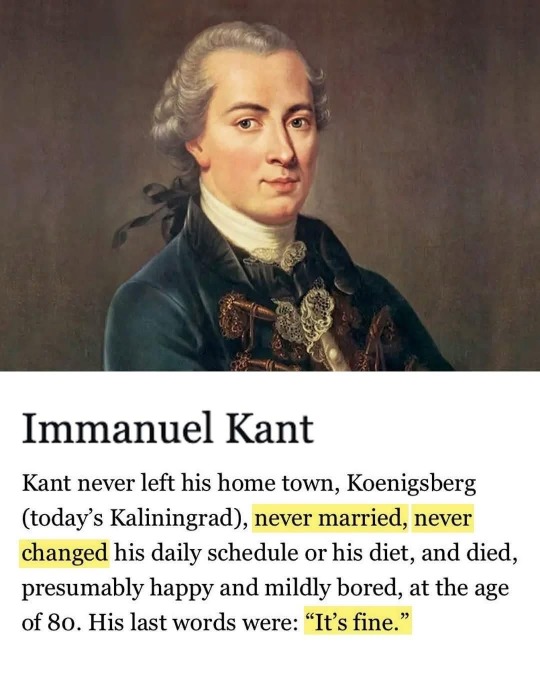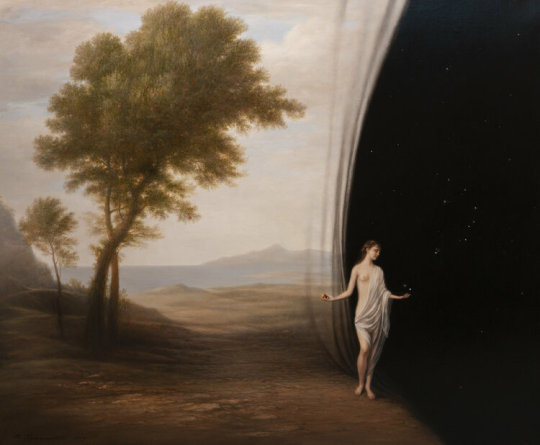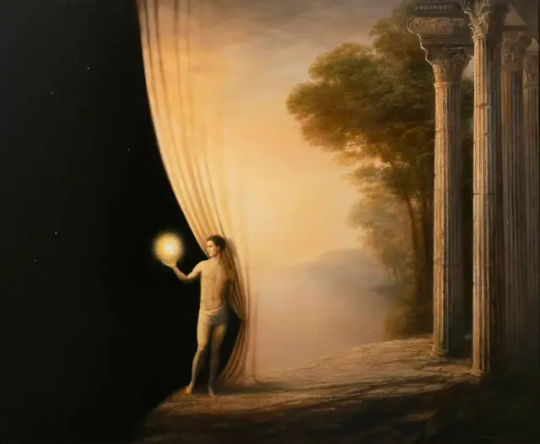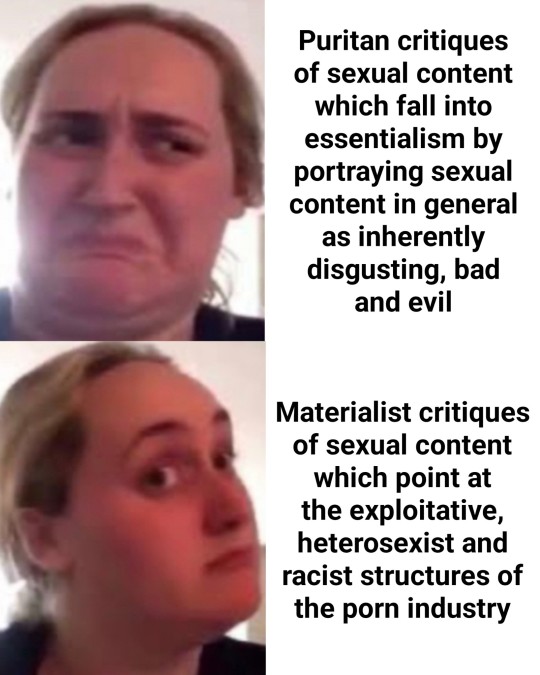#PHILOSOPHY
Explore tagged Tumblr posts
Text










Wikipedia / Image from pinterest / Machiavelli / George Santayana / Thucydides / Image from pinterest / Abba - Waterloo / J. M. Barrie - Peter Pan / Fibonacci spiral / Catherynne M. Valente
#dark academia#light academia#light academia aesthetic#dark academia aesthetic#darkest academia aesthetic#academia#darkest academia#academia aesthetic#chaotic academia#classic academia#history#eternal recurrence#eternal return#philosophy#history repeats itself#history repeating itself#webweave#webweaving#web weaving#web weave
19K notes
·
View notes
Text
Is that a valid argument in your pants or is it just a phallacy?
33K notes
·
View notes
Text

7K notes
·
View notes
Text
Not to kill the joke, but his last words were recorded as "Es ist gut" which means "It is good" in German. Like, still enjoy the Mood of it all, but small fact check (source)

bro same
#immanuel kant#philosophy#fact check#history#translation#'it's fine' is technically a correct translation but the subtext is very different
3K notes
·
View notes
Text

Eugene Thacker, "Nine Disputations on Theology and Horror", Collapse: Philosophical Research and Development, Vol. IV
11K notes
·
View notes
Text

In your life, you are an explorer on the far edge of timespace operating a body that is an entirely unique configuration of some of our universe's wildest, rarest technology.
So, when you make a mistake, leave aside the language of shame and failure. It's just new data from an undiscovered bit of existence. Instead, try, "ah, fascinating." Because you are.
105 notes
·
View notes
Text
Wrong does not cease to be wrong because the majority share in it.
Leo Tolstoy, A Confession
68 notes
·
View notes
Text

Excuse me sir are u Mary from the thought experiment
The color “olo” can’t be found on a Pantone color chart. It can be experienced only in a cramped 9-by-13 room in Northern California. That small space, in a lab on the UC Berkeley campus, contains a large contraption of lenses and other hardware on a table. To see olo, you need to scootch up to the table, chomp down on a bite plate, and keep your head as steady as you can. A laser will be fired into one of your eyes, targeting more than a thousand of your cone cells. (The scientists will have mapped their location on your retina in advance.) The lasers will activate your color vision like nothing in the natural world: A small square of exotic color will appear, just off-center from the focal point of your vision, against a background field of gray. It may flicker a bit, depending on what’s happening with the contraption, but it will remain unmistakably there.
paywall-free link: (x)
2K notes
·
View notes
Text

- A message from 23 nights temple -
“Even if you know they are lying, don't mention anything. Even if you think they are looking down on you, don't show on your face and go unnoticed.”
-二十三夜堂からのメッセージ-
“相手の嘘をついていると気づいていても、口には出すな。相手が自分を馬鹿にしていると、わかっていても顔には出すな。”
73 notes
·
View notes
Quote
Now I knew: things are entirely what they appear to be — and behind them... there is nothing.
Jean-Paul Sartre, Nausea
83 notes
·
View notes
Text


Philosophy - Dmitry Kochanovich, 2019 (1st) Oil on canvas, 100x120cm
Ideal - Dmitry Kochanovich, 2019 (2nd) Oil on canvas
#Philosophy#Ideal#Dmitry Kochanovich#2019#oil on canvas#art#painting#artwork#existential wondering#existencialism#frames#art frames#mood#🖤
14K notes
·
View notes
Text
Just little babs

1K notes
·
View notes
Text

Less puritanism, more materialism. Puritanism hurts women, queer people and other marginalized groups by framing their desires and bodies as "wrong" and "dirty". Systems and industries of oppression are the problem.
#sociology#philosophy#socialism#communism#queer#lgbtq#nonbinary#transgender#trans feminism#feminism#feminist#bisexual#trans#enby#gay#intersectional#intersectionalfeminism#intersectionalfeminist#intersectionality#marxism
58 notes
·
View notes
Text

David Harvey, The Condition of Postmodernity
6K notes
·
View notes
Text
Empathy for the Other
About Selective Compassion in Fandom Spaces
I feel like I need to write about a thing that’s not new, but it came to the forefront again with the show, and how some people react to Calliope in S2: There is a pattern of selective compassion in fandom that sadly also mirrors broader societal issues around whose pain we’re willing to acknowledge. While most fans readily extend understanding to Morpheus as a grieving father who finally kills his son out of unconditional love, the same empathetic lens (or even just acknowledgement) is conspicuously absent when examining Calliope’s near parallel experience of maternal love and loss. Everyone was willing to go there after S1 because, well, “romantic feelz” that are still all about Dream in a way. And people were also willing to go there because she was the abused muse. In S2 though? Not so much, and some people are even actively starting to turn on her.
I guess that kind of selective empathy exposes not only fandom’s investment in their blorbo (he’s mine, too! But it’s not about that), but also deeper societal blind spots regarding maternal experience and the humanity of characters who exist outside the protagonist’s immediate sphere.
A Tale of Two Parents

The story of Orpheus, to me, honestly shows where fandom empathy lies. And of course I get it. Dream’s decision to kill Orpheus is an act of profound love. Fandom recognises the agony and guilt of a parent and validates Dream’s choice, even if it hurts and has consequences. Comments consistently frame this moment as evidence of Dream’s capacity for growth and unconditional love. Because it is, and it’s true.

Yet Calliope’s parallel experience receives markedly different treatment. When she warns Orpheus about the approaching Maenads but accepts, in tears, that he wants to remain on the island because he lost his will to live, she too acts from maternal love: respecting her son’s autonomy while knowing it will have devastating consequences. Like Dream, she faces an impossible choice and makes a decision that honours her son’s wishes rather than her own desire to protect him. The metaphorical eternal suffering she endures as a result, the guilt, the grief, and the loss of her son, should logically evoke the same sympathetic response that Dream’s pain does.
But it doesn’t.
The different treatment of Dream and Calliope really shines a light on what I’ll just straightforwardly call the “blorbo effect”: the tendency to extend empathy primarily to our favourite characters while remaining blind to the equally valid experiences of others. Dream’s position as the show’s protagonist grants him a kind of empathetic immunity. His pain is centered, explored, and validated. Calliope’s pain, meanwhile, is pushed to the margins, dismissed, or actively ignored.
And that becomes even worse when I see some discussions about Dream’s and Calliope’s separation. Rather than examining the complex breakdown of their relationship which so clearly predates the Orpheus tragedy (I mean, it’s a mystery to me how some people don’t seem to pick up on that. Have people truly not noticed Calliope’s expressions during the wedding? They weren’t even micro expressions; they were blatantly obvious and she didn’t try to hide them. They didn’t spend time together during the celebrations. They did NOT show up as a couple that felt in any way close), parts of fandom instead blame Calliope for “abandoning” Dream because he didn’t want to put in a word with Hades. That was the final straw, but NOT the reason their relationship failed, and Calliope even said this herself, but people maybe have selective hearing as well, not just selective empathy. The implication that she should have remained with a husband whom she had grown apart from reveals a fundamental misunderstanding of both characters’ arcs. Plus, there’s also a staggering unwillingness to consider Calliope’s perspective as equally valid.
We Just Don’t Like Mothers Very Much, Do We?
Some fans’ struggle to empathise with Calliope speaks to a broader cultural blind spot regarding maternal experience. The demographic reality that much of fandom consists of people who have not experienced motherhood likely contributes to that kind of empathy gap. Without direct experience of maternal love, some fans really seem to struggle to recognise the profound love underlying all of Calliope’s actions. They will recognise the paternal love in Dream though. Strange that…
And this blind spot extends beyond fiction into real-world attitudes towards mothers. I’m going to out myself as one, and society often expects us to be simultaneously self-sacrificing and strong, to protect our children while also preparing them for independence, to love unconditionally while also setting boundaries. When mothers make difficult decisions, they’re often viewed with suspicion rather than understanding.
Prepare Yourselves for Misplaced Blame

I honestly can’t wait to see how fandom will treat Lyta Hall in S2 V2. It could be a test for fandom’s ability to develop more nuanced empathy. Lyta’s actions in The Kindly Ones represent perhaps the most primal expression of maternal love in the whole of The Sandman. Any mother (bar very few) would fight for her child’s life; Lyta’s actions are those of a mother who has been pushed to her limits due to fear and fierce love for Daniel. And that’s not villainous; that’s human.
But I remember discussions about her during S1, and I’m near convinced we’ll get the same selective empathy that I started to notice around Calliope. Lyta’s maternal desperation is viewed through the lens of how it affects Dream rather than understood as a valid response to an impossible situation. To me, that suggests that fandom’s empathy problems extend beyond individual character preferences to a more fundamental refusal (or perhaps inability, because “refusal” would suggest it is a choice, which I fear it isn’t) to recognise the full humanity of anyone who challenges or complicates the protagonist’s narrative.
The Other and the Limits of Empathy
At this point, I always want to recommend to look into the concept of “The Other” by Levinas, which shines a light on recognising the full humanity of those who exist outside our own immediate scope of existence and identification. And Morpheus functions as the “accessible self” for many fans: complex, flawed, but ultimately sympathetic, no matter his war crimes. Calliope and Lyta represent the Other: equally complex, equally deserving of empathy, but positioned outside the comfortable boundaries of protagonist identification.
And these considerations aren’t unique to fandom spaces but reflect broader cultural patterns of empathy distribution. We consistently show more compassion for those who are like us, share our experiences, or occupy central positions we can identify with in the narratives we consume. Those relegated to supporting roles (literally or figuratively) receive far less empathy, regardless of their actual circumstances or the validity of their experiences.
And I think that recognising these patterns could be a first step towards developing more inclusive empathy. Because The Sandman has a really complex moral landscape, tons of perspectives and would therefore offer a lot of opportunity for expanding empathetic understanding beyond protagonist-centered self-identification. But unfortunately, Netflix made it harder for us by choosing to focus entirely on Dream. And yet, it’s still possible to see Calliope’s love for her son, Lyta’s protective fury over the fate of her son, and they also deserve consideration and emotional investment. All of which fans readily give Dream.
Empathy isn’t just a thing you have. It requires conscious and continuous effort to build. It means examining our immediate emotional responses to characters and asking whether those responses are based on the characters’ actual actions and motivations or simply on their position within the narrative hierarchy. It means considering perspectives that might be unfamiliar or uncomfortable, particularly those rooted in experiences we haven’t personally shared.
And fandom’s selective empathy towards parental love and loss reveals both the power and limitations of fan identification. While the deep emotional investment in Dream always generates discussions about trauma, growth, and redemption (and it’s all good stuff. Well, mostly 🤣), the simultaneous dismissal of Calliope’s equally valid experience is just really telling. Especially for a character that got far more positive attention in S1 because, you guessed it, romance™️ (and people will readily identify with that because they can imagine themselves as that love interest. The mother who left her husband and has no part in romantic plot points though? Not so much…)
This isn’t simply about being “fairer” to female characters (although that’s certainly part of it). It’s rather about this:
Empathy isn’t whether we can feel for those who are like us or those ones we like, but whether we can recognise the full humanity of the Other: the mother making impossible choices, the parent fighting for their child, the woman whose pain exists outside the comfortable boundaries of our identification.
And that matters, because our world is divided. And it’s also divided because of our growing inability to understand perspectives different from our own. None of this is just a fandom issue, but fandom is an extension of what’s going on outside of it.
The Sandman Overture asks us to dream of a better world. And that starts with less selective empathy…
#the sandman#sandman#dream of the endless#morpheus#the sandman netflix#calliope#calliope sandman#calliope the sandman#lyta hall#the sandman comics#sandman meta#the sandman meta#sandman spoilers#the other#Emmanuel levinas#philosophy#empathy#compassion#queue crew
60 notes
·
View notes